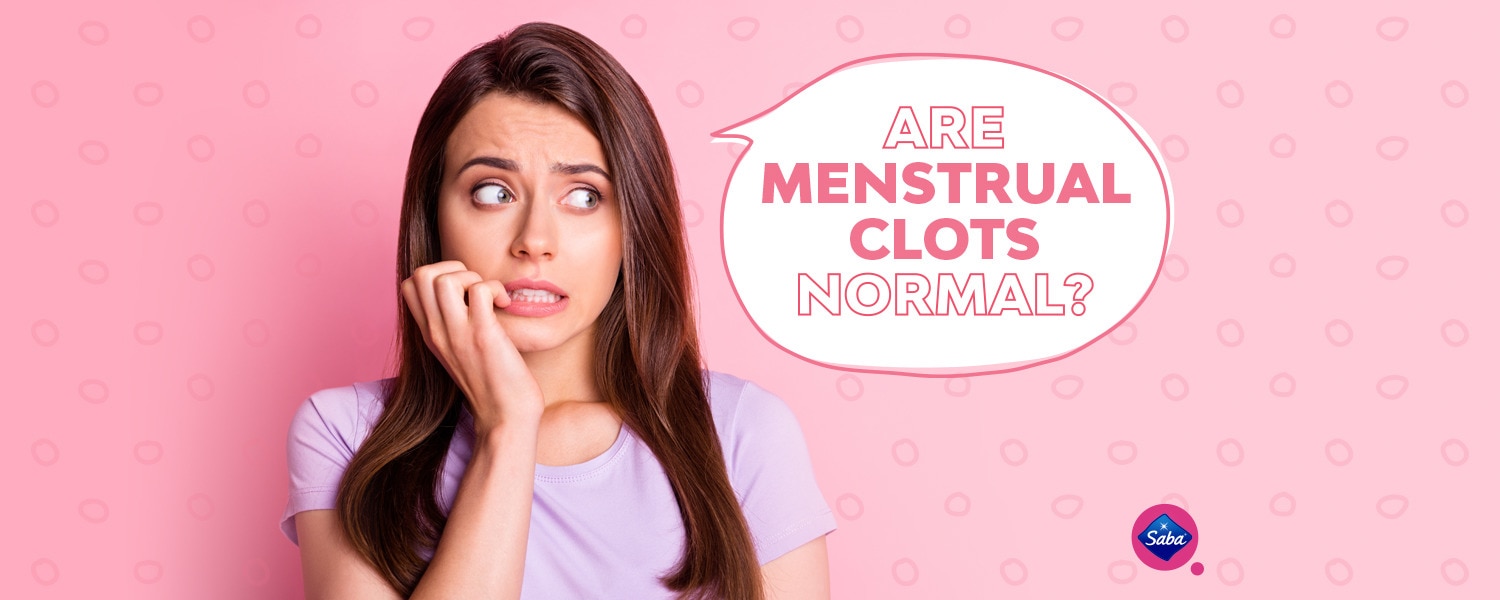ARE MENSTRUAL CLOTS NORMAL?

Saba® makes you feel #CómodaContigo.
Have you ever seen a clot during your period and the only thing that comes into your mind is, “What is that? Help!”?
We know it can get a little confusing the first time they appear, but you have nothing to worry about because this article is just for you. We’ll explain what these clots are and what their function is. Keep reading and find out!
To understand everything perfectly, let's go over a few things:
- The walls of our uterus change gradually to prepare our body for a possible pregnancy. They become thicker and full of new tissues in case we become pregnant.
- If we are not pregnant, this layer is detached little by little and that’s where menstruation comes from.
- Remember that when we suffer an injury the blood coagulates. It’s a natural defense to avoid losing too much blood, but during our period we need the blood to flow lightly to be able to be expelled.
- Our uterus produces an “anticoagulant”, but if our menstruation is very heavy, then that anticoagulant ends and some clots can appear.
So now, we go to the question: what are menstrual clots?
They are a natural way in which our body takes care of us. They control our menstruation flow so that we don’t lose too much blood.
Are they normal?
Yes, they are totally normal, and here are some of the factors that cause them:
- Uterus size
- Contraction of the uterine muscle
- Fibroids
- Cervical diameter
- Any obstruction of menstrual flow such as adhesions and polyps.
- Clots can measure between .19 and 1.5 inches, they are more frequent in women with a heavy flow.
What can they mean?
Pregnancy: When there’s a possibility of pregnancy, clots may be associated with a miscarriage or an ectopic pregnancy. We recommend you to see your doctor as soon as possible if there is bleeding during your pregnancy.
Hormonal changes: Hormonal changes can cause menstrual clots. In the short term, they can be caused by different reasons such as ovarian cysts and medications. On the other side, chronic hormonal changes are menopause, weight gain, or weight loss.
Endometriosis: Affects the female reproductive organs, and is when a very dense lining is formed around the uterus and other organs. It’s painful and causes many clots.
In conclusion, menstrual clots are normal but we must be aware of them. Many times our body gives us signals about something more serious. If you have constant clots, see your doctor to find out the cause.